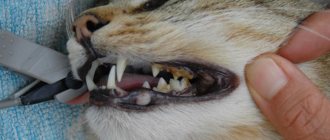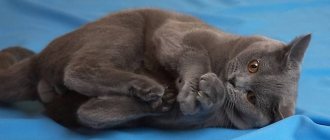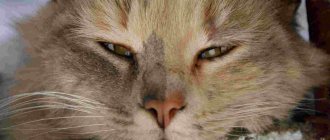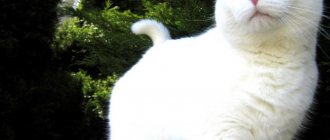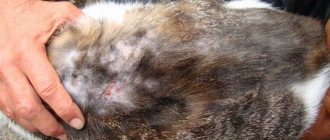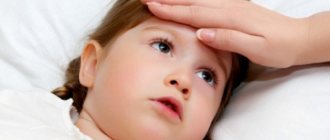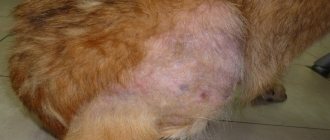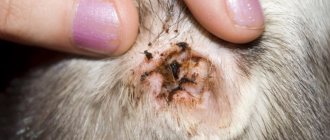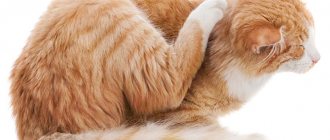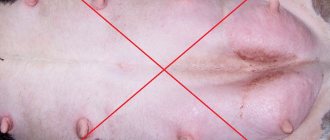The role of vitamins in the body of cats
Deficiency of nutrients in the body of a pet is considered one of the most common problems in recent years.
This is influenced by various diseases, environmental factors, the animal’s lifestyle, and nutrition. Vitamin deficiency occurs due to poor absorption of vitamins in the animal’s body, or their lack. This leads to disruption of the functioning of internal organs, deterioration of skin condition, slowdown of metabolism, and nervous disorders. Pets receive less nutrients than their street counterparts. To maintain the normal functioning of the body, it must receive certain groups of vitamins. They are divided into two large groups:
- Fat-soluble - these include groups K, E, D, A.
- Water-soluble - these include groups B, C.
Street animals can receive the required amount of useful components from natural conditions. At home, you need to replenish your supply of nutrients with proper nutrition and special supplements.
Reasons for the development of vitamin deficiency
The development of vitamin deficiency in cats is determined by certain reasons. During the treatment of diseases, it is important to direct efforts to eliminate the initial factor in the development of problems. Reasons include:
- weakened immunity;
- poor nutrition;
- the presence of infectious, fungal, viral diseases;
- small age of the pet;
- surgical intervention and the period after it;
- changes in environmental factors;
- diseases of the digestive system;
- period of pregnancy, feeding of kittens.
Vitamins may be poorly absorbed by the body due to frequent stress or poor living conditions for a pet.
Products for the prevention and treatment of vitamin deficiency in cats
Vitamin deficiency in a cat can manifest itself in different ways. This disease can be treated at home. To do this, you need to feed the cat food enriched with useful substances, follow the rules of caring for your pet, and treat diseases in a timely manner. Products for the prevention of vitamin deficiency:
- vegetable oil added to food;
- rosehip decoction;
- carrots, lettuce, turnips;
- egg yolks;
- meat, dairy products;
- Cod liver.
Additionally, it is necessary to give your pet fish oil, mineral supplements, and pure vitamins. If your pet's condition does not improve, you should contact your veterinarian.
Vitamin deficiency in cats is considered one of the most popular diseases that impairs the functioning of the entire body. Pets receive a small amount of nutrients. Therefore, it is important for owners to take care of a balanced diet for the cat and carefully monitor the condition of its body.
How does vitamin deficiency manifest itself in cats?
Symptoms of vitamin deficiency in a cat depend on the type of missing nutrients. It looks different. The pet may have no appetite, hair loss, general condition deteriorating, teeth falling out, and watery eyes. With careful observation, you can accurately determine which microelements the animal lacks and begin treatment.
Vitamin a
Most often, kittens lack this component at an early age. This causes conjunctivitis, tearing of the eyes, and damage to the mucous membrane. Gradually, the cat's vision deteriorates. The coat becomes dull and becomes dry.
B vitamins
This useful element is responsible for the activity of the central nervous system and its normal functioning. The animal's appetite worsens, muscle activity decreases, and excessive drowsiness appears. If there is no treatment, paralysis, tremors, and convulsions may occur. Immunity gradually weakens.
Vitamin C ascorbic acid
With a small amount of ascorbic acid in the cat’s body, the immune system will quickly weaken. This will make the body less resistant to the effects of infectious and viral diseases. During a long-term lack of vitamin C, problems such as joint pain and unstable movement will develop. Signs of vitamin deficiency in cats in the absence of ascorbic acid are manifested by stomatitis, bleeding gums, and watery eyes.
Vitamin d
The problem is common in kittens. The vitamin D group is involved in the construction of bone tissue. The absence of this useful substance leads to bone deformation and joint pain. The growth of the animal slows down. Vitamin deficiency leads to the development of rickets, which impairs the functioning of the entire body.
Vitamin e
The lack of this vitamin negatively affects the appearance of offspring in a cat. This could be a miscarriage, complications during pregnancy, childbirth. In addition, there are problems associated with the functioning of the gastrointestinal tract.
Vitamin K
The absence of this beneficial substance leads to deterioration of the circulatory system, decreased physical activity of the cat, lethargy, drowsiness, poor appetite, and joint pain.
The danger of vitamin deficiency
Vitamin deficiency in cats weakens the body's defenses and negatively affects the state of the reproductive system, musculoskeletal system and brain activity. Unlike most diseases, a lack of microelements does not directly threaten the body, but can be fatal due to associated complications.
A weakened immune system is unable to fight infections and parasites, so an unvaccinated and untreated pet may die if infected. Pregnant animals risk dying during childbirth, and their offspring are not always viable. All this can be avoided with the help of a properly selected diet, taking into account the norms recommended by veterinarians.
Factors influencing the development of vitamin deficiency in cats
Experts identify a number of reasons that provoke the development of the disease in cats, especially domestic ones. Moreover, even the most correct and balanced nutrition of a mustachioed pet does not always guarantee complete absorption of vitamins and microelements. Vitamin deficiency in cats occurs for the following reasons:
- daily diet low in vitamins;
- the first months of a kitten's life;
- pregnancy, lambing, period of feeding babies;
- low ambient air temperature;
- pathological disorders of the digestive system or organ diseases;
- past infectious or viral diseases;
- weakened immune system;
- long-term use of antibiotics or sulfonamides;
- the presence of helminths, especially tapeworms.
The period of pregnancy, as well as feeding babies, causes a deficiency of vitamins in cats.
The following reasons contribute to a decrease in the absorption and assimilation of vitamins:
- stress, neurotic disorders
- pathologies of the endocrine system
- unsatisfactory living conditions for the pet.
Vitamin A
A is a fat-soluble vitamin, the deficiency of which causes growth retardation, visual impairment and decreased coat quality. Its deficiency is especially dangerous for kittens, who have a high probability of damage to the mucous membrane of the eyes and subsequent development of conjunctivitis.
If there is no or insufficient vitamin A in a cat's diet, then the cat will experience the following symptoms:
- inflammation of the mucous membranes,
- slow growth
- weight loss,
- "night blindness"
- nervous system disorder.
To cope with vitamin deficiency and replenish vitamin A, you need to add a number of products to your pet’s diet: butter, yolks, fish oil, beef liver.
List of products and specific signs of deficiency
Vitamin deficiency is rare in a kitten that was fully fed by a cat. If it turns out that you took an animal from the street, you should provide it with the following products: fish oil, bone meal, children's nutritional supplements. It is possible to add brewer's yeast within reasonable limits.
Before adding vitamins, of course, you should consult with a specialist who will create a diet taking into account the individual characteristics of your pet. Fat-soluble (A, D, E, K) and water-soluble (B1...12, C) vitamins should be added separately.
A
It is caused by deterioration of vision, damage to the mucous membrane, and the development of conjunctivitis, which has an unpleasant effect on the cat, as a representative of the nocturnal lifestyle. Vitamin A deficiency can lead to intestinal problems (specifically, loose stools).
An important sign of vitamin deficiency is deterioration in the condition of the skin and hair: the coat becomes dull, the skin dries out . The cat loses its external attractiveness. Products for prevention: fish oil, eggs (yolk), butter, beef liver.
IN
Vitamins B1 - thiamine and B2 - riboflavin are responsible for maintaining the nervous system and nerve signal activity. A deficiency leads to poor digestion and reduces the level of hemoglobin in the blood. Serious disorders include pathologies of pregnancy and postpartum injuries.
A problem with vitamin B1 leads to dry mucous membranes and susceptibility to infectious diseases. A lack of vitamin B6 can lead to problems with the musculoskeletal system (arthritis and urolithiasis). Possible stomatitis.
Vitamin B12 deficiency in the body will lead to poor intestinal absorption, which can lead to constipation. Leukemia, a blood clotting problem, may develop.
Products for prevention: raw meat and its by-products (liver, poultry kidneys), bone meal, dosed brewer's yeast, eggs, fermented milk products (yogurt, snowball, bifid), fresh herbs, zucchini, carrots.
IMPORTANT! Water-soluble vitamins are not always combined and can lead to complications.
For example, vitamins B6 and B12 are destroyed upon contact; B1 and B12 - vitamin B12 is partially oxidized, an overdose of such vitamins causes shock; B1 and B6 - slow down the absorption of both.
WITH
The absence of ascorbic acid leads to decreased immunity. Stomatitis develops, gums bleed, tooth loss and serious gum disease are possible.
A lack of vitamin C interferes with collagen formation, which leads to joint problems and an unsteady gait. Citrus fruits are contraindicated for cats, including in the form of purees and juices.
Products for prevention: carrots, lettuce leaves, ascorbic acid from the pharmacy, turnip or pumpkin.
D
Dangerous primarily for kittens. Due to problems with the metabolic processes of phosphorus and calcium, the animal develops rickets, bones become deformed, and the size of the joints changes. Kittens are developmentally delayed and have breathing problems.
Products for prevention: meat and dairy products (low-fat cottage cheese), egg yolk and brewer's yeast.
E
Problems with the reproduction of offspring are associated precisely with vitamin E deficiency. Chronic infertility or lethargy of sperm are the main diseases with vitamin deficiency. Pancreatitis may develop.
Products for prevention: some sea fish, fresh herbs, dairy products, premium store food.
What vitamins do cats need?
If your cat eats dry and wet food, then it must contain a complex of vitamins, and not selective additives. Also, when eating wet or single-ingredient holistic foods, there are often no vitamins included as supplements. The product is served to the cat as it is, specially processed, and vitamins are added to the food according to a prescription from a veterinarian.
If you feed your cat “natural” food, then you will have to monitor the level of vitamins through a blood test, with sampling approximately once a year. Based on the results, your veterinarian will need to prescribe additional vitamin supplements to compensate for the deficiency in the nutritional pattern. And believe me, using a natural type of feeding cannot be done without additives, because it is very difficult to fill the diet of a domestic cat on your own the way nature intended.
But not all vitamins are vital for cats; there is a group of especially valuable ones, and there are minor ones. Important vitamins include:
- A, D, E, K – a group of fat-soluble vitamins, the main participants in all physiological processes in a cat. The group is responsible for forming the immune response, maintaining reproductive function, and maintaining muscle tissue.
- B, C, U – water-soluble group responsible for metabolism.
- Panthenolic acid, folic acid, biotin, carotene are provitamins for good quality wool, bones, and connective tissues.
- Taurine is responsible for vision in cats, control of its consumption is extremely important.
All other vitamins, as a rule, the cat is able to obtain from food. Cases of detection of a lack of vitamins of a non-essential group are very rare and most often occur in animals with a generally poor diet, when there can be no talk of balance.
Dangers of hypovitaminosis in cats
If there is a lack of vital substances, the animal’s body experiences numerous problems. This is due to the fact that vitamins are involved in almost all life processes. With their deficiency, the condition of the mucous membranes worsens, which leads to diseases of the digestive and respiratory organs. The functions of the reproductive system are disrupted, spontaneous abortions, miscarriages, and postpartum complications are diagnosed in females.
Many vitamins, participating in complex biochemical reactions, when deficient, cause damage to the nervous system, including convulsions and paralysis. In cats experiencing hypovitaminosis, the body's immune strength decreases and they become susceptible to infectious diseases.
If you don't have enough vitamin A
Acute conjunctivitis in a kitten
Deficiency of retinol in the body is dangerous primarily for newborn kittens and young animals. In animals, the mucous membrane of the eyes is affected, which is accompanied by conjunctivitis. Vitamin A deficiency leads to disruption of the epithelization processes of the small intestine, causing diarrhea.
The lack of carotene (provitamin A) in the diet is the cause of the development of night blindness, which is of no small importance for a cat that hunts at dusk.
The lack of retinol also affects the condition of the skin and coat. The animal's skin becomes dry and its fur becomes dull. The pet loses its aesthetic appearance.
If you lack B vitamins
In biochemistry, B vitamins are usually associated with the functioning of the nervous system. Deficiency of vitamin B1 (thiamine) and B2 (riboflavin) leads to disruption of the conduction of nerve impulses, impairs digestion, and reduces the level of hemoglobin in the blood. The animal may experience convulsions and even paralysis.
Thiamine deficiency leads to pregnancy pathologies and postpartum complications.
A lack of riboflavin in the body leads to dryness and ulcers of the mucous membrane, and the body's susceptibility to viral infections. The disease develops when the cat does not consume enough meat.
Vitamin deficiency of pyridoxine (vitamin B6) is fraught with the development of problems with the musculoskeletal system (arthritis) and urolithiasis for a pet. A deficiency of the substance leads to stomatitis and conjunctivitis.
Stomatitis
Vitamin B12 deficiency often develops as a result of impaired absorption due to helminthic infestations and intestinal diseases. The pathology is dangerous due to the development of anemia, blood clotting disorders, damage to the nervous system and the development of constipation.
If you don't have enough vitamin C
A lack of ascorbic acid, the main natural antioxidant, in the body of a domestic cat leads to decreased immunity and weakened resistance to infections.
Long-term vitamin C deficiency leads to the development of stomatitis, gum disease, tooth loss, hemorrhages in the mucous membranes, and bleeding gums. With a lack of ascorbic acid, the formation of collagen and elastin is disrupted, which leads to joint diseases and an unsteady gait.
If you don't have enough vitamin D
Manifestations of rickets
This vitamin deficiency is dangerous primarily for small kittens. Young animals develop rickets due to disturbances in phosphorus-calcium metabolism. Children experience deformation of the tubular bones and enlarged joints.
Animals are retarded in growth and development, there is a noticeable curvature of the spine, and incorrect positioning of the limbs. Young animals suffer from diarrhea, and upper respiratory tract infections become more frequent.
In adult animals, vitamin D deficiency leads to the development of softening of bone tissue - osteomalacia. 's gait changes, the spine sags, and inflammation of the joints develops.
If you don't have enough vitamin E
Tocopherol deficiency in domestic animals leads to the development of infertility, disruption of pregnancy, abortion, miscarriage, and premature birth. With its deficiency, pancreatitis and degenerative processes in the intestines develop. Vitamin deficiency often progresses when a cat is fed only fish, which is poor in vitamin E.
What does a cat look like with vitamin deficiency?
This disease can affect not only people. Vitamin deficiency in cats manifests itself in apathy, drowsiness, and lethargy. The main thing is to diagnose the disease in time and begin treatment.
The role of vitamins
Vitamins are an important element in a cat's diet. In the wild, predators obtain them mainly from the meat of prey, which they eat along with the skin, bones, feathers, if it is a bird. And a small but important part from plant foods. Partially in the form of the contents of the victim's stomach.
Pets can also get vitamins by eating their food. In expensive industrial mixtures, super premium or holistic, there are usually enough of them, these foods are balanced in composition.
With a natural diet, the cat most often does not have enough vitamins. The food that a person can offer to a pet does not contain all the elements necessary for the predator’s body. Then vitamin deficiency occurs. The animal becomes lethargic, apathetic, loses its external gloss and grooming, begins to limp, and coordination of movements is impaired.
At the same time, the body is susceptible to multiple diseases, quickly depleted, and does not have the necessary protection.
Each group of vitamins has its own functions:
- A - increases the body’s immune defense, stimulates cell renewal and growth, improves vision.
- B - responds to the proper functioning of the gastrointestinal tract, the condition of the coat and skin, and general activity.
- E is an antioxidant. The functioning of the reproductive system and the development of the fetus depend on it. Therefore, this vitamin is necessary primarily for pregnant females.
- D - necessary for the proper formation of the skeleton, joints and muscles.
- C - helps increase the elasticity of the walls of blood vessels, is responsible for the functioning of the heart muscle and joints.
- H - the condition of the cat’s skin and coat depends on it.
- K is necessary primarily to ensure blood clotting.
- Taurine is an essential amino acid that is most responsible for maintaining a cat's immune system and improving vision.
Causes of vitamin deficiency in cats
Not only good nutrition controls the correct ratio of vitamins in the cat’s body. Vitamin deficiency in a pet can develop for the following reasons:
- unhealthy diet with insufficient vitamin content;
- unsuccessful pregnancy, abnormal fetal development;
- difficult childbirth, lack of maternal feeding;
- chronic diseases of the gastrointestinal tract;
- consequences of past viral infections;
- reduced level of immune defense;
- long-term use of antibiotics and sulfonamide drugs;
- infection of a cat with helminths;
- pathologies of the endocrine and nervous system;
- prolonged stressful conditions;
- general low level of pet maintenance, poor quality care.
How does vitamin deficiency manifest itself in cats?
The first sign of the disease is a decrease in general tone. Then the coat begins to lose its shine, becomes greasy in appearance and unkempt, and it may fall out and areas of baldness may appear.
The animal strives for solitude, sleeps a lot, and loses its appetite. Sores and sores may appear on the skin, and itching begins.
At first, the disease usually proceeds secretly, its clear signs appear in the second stage.
The lack of a particular vitamin is characterized by a certain symptom.
Vitamin A deficiency
The most painful effect of retinol deficiency is on kittens, both newborns and adolescents.
First of all, the mucous membrane of the eyes suffers, conjunctivitis develops, quickly turning into an acute form. The epithelium of the small intestine is damaged, which causes diarrhea.
An adult cat may develop “night blindness”, the effect of poor twilight vision, which is simply a disaster for a predator.
The condition of the skin and coat also deteriorates; they become dry, brittle, dull, and dermatitis appears. Females may develop infertility, stress and nervous disorders.
Lack of B vitamins
Biochemically, this group is responsible for many body functions, but primarily for the functioning of the nervous system.
Thiamine (B1) and riboflavin (B2) are responsible for the conduction of nerve impulses. In addition, with their deficiency, the functioning of the gastrointestinal tract deteriorates and hemoglobin drops. With a large deficiency, seizures, epilepsy and muscle paralysis may occur.
A deficiency of this group of vitamins is unacceptable for a pregnant female; this can lead to complications, difficult childbirth, postpartum hemorrhage and illness.
It is the lack of riboflavin that can cause the formation of sores and ulcers in the animal’s oral cavity.
Pyridoxine (B6) is largely responsible for the functioning of the musculoskeletal system, but not only. With its deficiency, arthritis, urolithiasis, stomatitis, gingivitis, and conjunctivitis develop. Lack of B12 leads to the progression of anemia, decreased blood clotting, decreased heart rate, and constipation.
Vitamin C deficiency
It is one of the main natural antioxidants. With its deficiency, the body's immune defense sharply decreases, which manifests itself in permanent stomatitis, gingivitis, periodontal disease, bleeding from the gums and even the loss of teeth by the cat. The elasticity of blood vessels decreases, joint diseases appear, and coordination of movements is impaired.
Vitamin D deficiency
Kittens primarily suffer from a lack of this vitamin. Due to improper development of bones and the entire skeleton as a whole, rickets progresses. Children also suffer from painful growth of joints, brittleness of bones, fractures and sprains, curvature of the spine, and diseases of the respiratory system.
Vitamin E deficiency
This is dangerous primarily for the intrauterine development of the fetus. Lack of tocopherol can also lead to infertility, difficult pregnancies and childbirths, miscarriages, and the birth of malformed and dead kittens. Vitamin deficiency type E contributes to the development of pancreatitis and disruption of the digestive system.
General signs of pathology may indicate not only vitamin deficiency; they are also characteristic of many other, more serious diseases. Only a thorough examination at a veterinary clinic will help establish an accurate diagnosis.
Mr. Cat recommends: how to solve the problem
There is no systemic treatment for vitamin deficiency. The main thing here is to identify the problem in a timely manner and understand which groups of vitamins the pet lacks.
You should not give your cat vitamin-mineral complexes independently and uncontrollably. Excess vitamins can lead to smaller, and sometimes even bigger, problems.
It is important to properly adjust the animal’s diet. The veterinarian usually prescribes the use of complexes when the cat eats natural food, in which it is difficult to achieve the required content of the necessary elements.
If your pet is on dry formula, then you may need to switch to more expensive but high-quality food. For example, in the holistic class they are all balanced and no additional vitamin intake is required. This is Savarra, Monge, Grandorf.
Treatment
Treatment of vitamin deficiency begins with a qualitative improvement in the animal’s feeding. He needs to be fed food rich in vitamins. Of course, spoiled food, as well as those whose expiration date has expired, are immediately thrown away and feeding is stopped.
Reference!
As drug therapy at home, either intramuscular or oral administration of a vitamin complex is used. And we must not forget to treat those diseases that are still “available”.
Mr. Cat recommends: how to solve the problem
There is no systemic treatment for vitamin deficiency. The main thing here is to identify the problem in a timely manner and understand which groups of vitamins the pet lacks.
You should not give your cat vitamin-mineral complexes independently and uncontrollably. Excess vitamins can lead to smaller, and sometimes even bigger, problems.
It is important to properly adjust the animal’s diet. The veterinarian usually prescribes the use of complexes when the cat eats natural food, in which it is difficult to achieve the required content of the necessary elements.
If your pet is on dry formula, then you may need to switch to more expensive but high-quality food. For example, in the holistic class they are all balanced and no additional vitamin intake is required. This is Savarra, Monge, Grandorf.
If the problem has gone far and adjusting the diet does not solve it, then you will have to purchase special vitamin complexes. The table shows some of them.
| Name | Characteristic | Price, rubles |
| Excel Brewer's Yeast 260 tablets | B vitamins. Contains zinc, brewer's yeast, tuna fat. Appetite, coat and skin quality increase, and the functioning of the nervous and immune systems improves. | 455 |
| Beaphar Top 10 Cat 180 pieces | Multivitamin complex with taurine. A broad-spectrum drug that strengthens the immune system. Can be given to kittens. | 623 |
| Anivital Feli Immun 140 tablets | Vitamins C and E, iron, choline, folic acid. Broad-spectrum complex. | 1730 |
| Beaphar Kitty Mix 180 tablets | Vitamin and mineral complex with taurine, phosphorus, sodium, biotin, leucine, calcium. Strengthening the cardiovascular and immune systems. | 1391 |
| Canina Canivita 100 ml | Multivitamin complex (A, B, C, D, E). Reduces cholesterol, improves heart function, improves immunity, improves the quality of coat and skin. | 936 |
| Gimpet Multi-Vitamin Paste Extra 200 g | Multivitamin complex in paste form. | 640 |
| VetAminex 60 pieces | Multivitamins with zinc, calcium, phosphorus, folic acid. | 2000 |
| Radostin 90 pieces | Vitamin and mineral supplement. | 201 |
| Biorhythm for kittens (morning + evening) 24 doses | Vitamin and mineral complex with taurine, calcium, phosphorus, iodine, molybdenum, iron, zinc, selenium, copper. | 235 |
Causes of vitamin deficiency
In addition to a poor diet, there are several other reasons that influence the lack of vitamins. These include:
- complications during pregnancy;
- diseases of the gastrointestinal tract, nervous and endocrine systems of a chronic nature;
- low innate immunity;
- prolonged helminthiasis and stress;
- difficult childbirth and artificial feeding, which deprives the kitten of a number of nutrients;
- complications after viral infections;
- long-term antibiotic therapy;
- unfavorable living conditions (dirty water, low temperatures) and neglect of animal care.
Symptoms and treatment of vitamin deficiency in cats depend on the group of missing vitamins. For this reason, you should contact your veterinarian at the first signs of illness. Self-medication can lead to the opposite effect and cause hypervitaminosis, that is, intoxication with an ultra-high dose of one or more micronutrients. Moreover, an excess of vitamins is no less dangerous than a deficiency.
Clinical and objective manifestations of vitamin deficiency in cats
The development of vitamin deficiency is a long process, and untimely detection of vitamin deficiency leads to the development of more severe diseases, many of which have irreversible consequences. The clinical course of the disease is conventionally divided into three stages.
Stage I is latent, when symptoms are completely absent.
Stage II is nonspecific, when general symptoms of vitamin deficiency in cats appear, which are also characteristic of many other diseases:
- weakness;
- lethargy;
- anemia;
- weakened immunity;
- weight loss;
- growth and development delays;
- decreased skin elasticity;
- dullness and brittleness of wool.
Stage III is specific, which is characterized by the presence of signs specific to vitamin deficiency. To determine which vitamin deficiency your cat is suffering from, you should know the signs characteristic of this deficiency.
Vitamin A
Belongs to the fat-soluble group, enters the body with vegetables, eggs (yolk), fish (fish oil), and vitamin complexes. The component accumulates in the liver, an excess of it causes intoxication or anaphylactic shock. Vitamin deficiency causes deterioration in coat quality, slow growth, and contributes to the development of eye diseases: inflammation of the lacrimal glands, xerophthalmia, damage to the mucous membrane and cornea. The latter leads to the development of severe pathology - loss of twilight vision.
B vitamins
They are water-soluble components and enter the body with food products of plant and animal origin. A deficiency of any component of this group affects the musculoskeletal and nervous systems, causing dysfunction of almost all organs and systems. Lack of vitamins worsens the condition of the coat, causing hair loss.
A pet may suffer from vitamin deficiency
Cats that live in urban environments and eat dry food require regular intake of folic acid, a vitamin B12 that promotes the production of red blood cells.
Vitamin C – ascorbic acid
A water-soluble component that, with a properly balanced diet, is synthesized in the body of a pet. Its deficiency leads to weakened immunity, increases the likelihood of various diseases, including joint damage, swelling and hyperemia of the gums, oral cavity, and the development of scurvy.
Vitamin D
Present in milk, eggs, fish. It is the main building material of the bone frame and animal teeth. Under the influence of sunlight, it is synthesized in the body and regulates the balance of magnesium, phosphorus, calcium and potassium. A deficiency of this component, just like in humans, leads to the development of rickets.
Vitamin E
A vital and necessary antioxidant, the deficiency of which causes severe disorders in the reproductive system of the cat family. In males, this causes sperm sluggishness, and the female may suffer from chronic infertility. Contained in salads, vegetables, vegetable oil, sprouted wheat.
Vitamin K
It is synthesized in the body and also comes from food. Present in dairy products, fish, vegetables and herbs. Responsible for maintaining a properly balanced blood composition, in general, and platelet levels in particular.
It is quite simple to identify vitamin deficiency in cats, the symptoms of which were described in detail above. To do this, you should carefully observe the behavior of your pet. If a cat has become lethargic, passive, has lost interest in its favorite games and toys, it often meows and itches, it means that its body is experiencing a deficiency of vitamins.
Organization of feeding as prevention
In addition to organizing comfortable living conditions, proper care, compliance with the schedule of vaccinations and treatment against parasites, to prevent vitamin deficiency in cats, it is necessary to take care of their feeding. To do this, follow these recommendations:
Buy sprouted grains regularly or start growing them on your windowsill.
Avoid mixing different types of feeding. This may cause hypervitaminosis or indigestion.
Avoid industrial feeds that are less than premium. If your pet does not have problems with the kidneys or other organs, give preference to the holistic class. Its composition is as close as possible to natural nutrition, as it contains a lot of protein.
Be sure to add ready-made vitamin complexes to the diet if you decide to feed your cat natural food. Unlike dry food with a pre-designed composition, feeding with natural products is inferior in its nutritional value. You may not be able to achieve balance without supplementation, so consult your veterinarian about this.
Don't try to supplement your diet with the most popular multivitamins. Without knowing the real picture, you will only harm the animal by creating an artificial deficit or surplus. It is also important to note that some vitamins are not compatible with each other. They are absorbed only separately, and not in a single complex.
Add vegetable oils, brewer's yeast, bran and herbs to natural dishes.
Use heat treatment only for offal. Serve the meat raw but well frozen. For safety reasons, try to buy meat products only from farm stores that have all the necessary licenses and certificates.
Don't forget about the importance of sun rays. If your pet always stays at home, give him free access to a balcony with uncurtained windows. There he will be able to receive his dose of ultraviolet radiation, which is responsible for the production of vitamin D in the subcutaneous tissue.
Vitamin deficiency in cats is a fairly rare disease. In most cases, similar symptoms are diagnosed with hypovitaminosis, which is much easier to treat and has less serious complications.
Remember that the main cause of the diseases discussed is mistakes on the part of the owner. With proper care and proper menu planning, all these troubles can be avoided. Do not skimp on your pet’s diet and always consult a veterinarian when choosing medications to prevent vitamin deficiency.
The article is for informational purposes only. Contact your veterinarian!
complications after viral infections;
Pets are completely dependent on their owners. Unlike their wild relatives, they cannot control their diet. A poor diet can cause serious illness, so it is important to make sure you are getting enough nutrients from your food.
Necessity of elements
The main micronutrients are divided into 2 large groups: water-soluble (B, C) and fat-soluble (A, D, E, K). The former do not accumulate in the body and are excreted in the urine, while the latter are stored in adipose tissue and the liver. Most of the deficiencies are in water-soluble micronutrients.
All of the listed elements are responsible for certain functions:
- A – improved vision, increased immunity and cell regeneration;
- B – normalization of general activity, preservation of coat quality, stabilization of the heart, gastrointestinal tract and musculoskeletal system;
- C – increasing the elasticity of vascular walls, maintaining the functioning of the heart and joints;
- D – formation of the musculoskeletal structure and articular tissues;
- E – development of the reproductive system and neutralization of free radicals that damage healthy cells;
- K – ensuring blood clotting, preventing heavy blood loss.
We recommend reading: How long does it take to remove the uterus in dogs?
Most of the listed substances are not synthesized in the body and enter it strictly from the outside. Proper functioning of the cat's body is possible only with a balanced diet. Otherwise, problems may arise not only for the animal itself, but also for its offspring.
When feeding dry food, a lack of microelements occurs only when choosing economy-class products made from low-grade raw materials. In most cases, pets that eat natural food suffer from deficiency.
To obtain basic elements, the diet must consist of certain foods. Their list can be found in the example table.
It is almost impossible to achieve a sufficient amount of elements with natural products alone, so veterinarians recommend using special supplements. They are produced in injection form, in the form of tablets, drops and pastes.
Causes of vitamin deficiency in cats
The animal body (as well as the human body) reacts sensitively to changes in weather and environmental conditions. This is especially noticeable during the so-called off-season period.
Attention!
There is no guarantee that even an attentive owner will guess how to feed the animal correctly. Even a seemingly nutritious diet does not guarantee the absence of vitamin deficiency in mustachioed pets.
Possible causes of vitamin deficiency in cats:
- a diet that the cat eats every day, but which contains few vitamins;
- in the first months of a kitten’s life this is a common occurrence;
- the sick cat is in the periods of: pregnancy, lambing or nursing;
- if the ambient temperature is cold;
- if there are pathological disorders of the digestive system or diseases of various organs;
- the cat has a weakened immune system;
- she has suffered from infectious or viral diseases;
- she had to take antibiotics or sulfonamides for a long time;
- Helmenitis has settled in her body, it is especially dangerous when it is tapeworms.
The following animals are at risk of getting the disease:
- who were exposed to stress and/or neurotic disorders;
- who have been diagnosed with a pathology of the endocrine system;
- who experienced unsatisfactory living conditions.
Reference!
Most often, vitamin deficiency occurs due to hypovitaminosis. This painful condition may occur due to the fact that the body receives less vitamins than it uses.
Hypovitaminosis A
Hypovitaminosis A in cats is when metabolism is seriously impaired.
It is accompanied by the following symptoms: vision rapidly deteriorates, immunity decreases, and developmental abnormalities are observed in the cat.
It is caused by a lack of vitamin A and/or carotene, which is its chemical precursor.
Hypovitaminosis B
This is also a painful condition, only arising when there is a violation of the correspondence between how much B vitamins are consumed and how much enters the body.
Hypovitaminosis C
Ascorbic acid deficiency (i.e. vitamin C) is caused by a defect in the body associated with its deficiency. In severe form, this very defect can cause the development of an even more serious disease - scurvy. It happens not only to people.
Hypovitaminosis D
Medical sources characterize this disorder as a chronic disease.
It is characterized by a disorder of vitamin D metabolism, which is characterized in young animals (in this case, kittens) in the form of rickets, in older animals - in the form of osteodystrophy.
Mostly calves and piglets suffer from this disease, but cats are not spared from this disease either.
Hypovitaminosis E
Appears as a result of a lack of vitamin E in the animal’s body. Its other name is tocopherol. It is characterized by the accumulation of peroxidation products, liver dystrophy, and degenerative processes in muscle tissue.
The difference between vitamin deficiency and hypovitaminosis
Vitamin deficiency in cats is often confused with a similar concept - hypovitaminosis. They differ in the severity of the condition. In the first case, there is a total lack of one or more elements, and in the second - a partial one.
Hypovitaminosis is a milder disease, accompanied by fatigue and frequent colds. It is always associated with poor nutrition and never occurs due to disruption of the digestive organs responsible for the absorption of vitamins.
Symptoms of vitamin deficiency
Of course, there are certain signs that can indicate developing vitamin deficiency in a cat. But without a proper examination, it is very difficult to confirm a particular diagnosis.
ATTENTION! Most of the signs inherent in vitamin deficiency can be attributed to other diseases, sometimes much more dangerous for the animal.
Vitamin deficiency usually develops in several stages. The first phase is the latent course of the disease. The origin of vitamin deficiency. The second phase - general symptoms of vitamin deficiency appear, which can cause other diseases:
- Skin itching. Areas around the ears and around the eyes will help identify incipient vitamin deficiency. In damaged areas, hair falls out and the skin becomes flaky or scratched. There may be skin diseases or parasites (ticks, in particular), so contact your veterinarian immediately for diagnosis.
- Loss of skin elasticity. If, when collecting the skin into a fold, it quickly straightens out, this may be the first signal in the development of the disease. Just like the appearance of scales on the skin.
- Hair loss. The accompanying symptoms will also be loss of shine, the coat quickly becomes dull
- Loss of appetite. The cat refuses favorite foods or has uncontrollable appetite. There may be a desire to try inedible things (earth, stones, feces). This happens against the background of a general decrease in immunity and a slowdown in metabolism.
- Nervous disorders. General apathy of the cat, worsening reaction, poor coordination of movements, or, conversely, unusual aggressiveness or nervousness.
- Unfavorable living conditions. The third phase is specific, in which the deficiency of each specific vitamin has its own symptoms.
Sources
- https://VashiKoshki.ru/zdorove/avitaminoz-u-koshek
- https://lemiki.ru/avitaminoz-u-koshek/
- https://koteiki.net/zdorove-koshek/avitaminoz-u-koshek.html
- https://zootvet.ru/avitaminoz-u-koshki/
- https://lapulik.com/o-koshke/bolezni_i_lecheni/avitaminoz.html
- https://MrKot.com/avitaminoz-u-koshek
[collapse]
How is it diagnosed?
If symptoms and unusual behavior of the animal are detected, you should contact a specialist for examination. If you observe unusual behavior in a cat and externally manifested symptoms of hypervitaminosis, you need to show your pet to a veterinarian, who, after conducting a diagnostic examination, will confirm the diagnosis and prescribe appropriate treatment. The doctor will need information about the animal’s chronic pathologies, its recent diet, pills taken, and vitamin-containing medications. To make an accurate diagnosis, your veterinarian will need blood and urine results.
